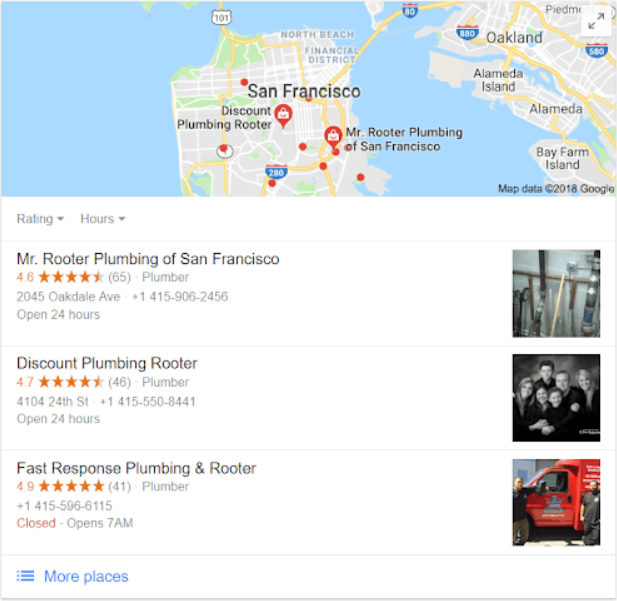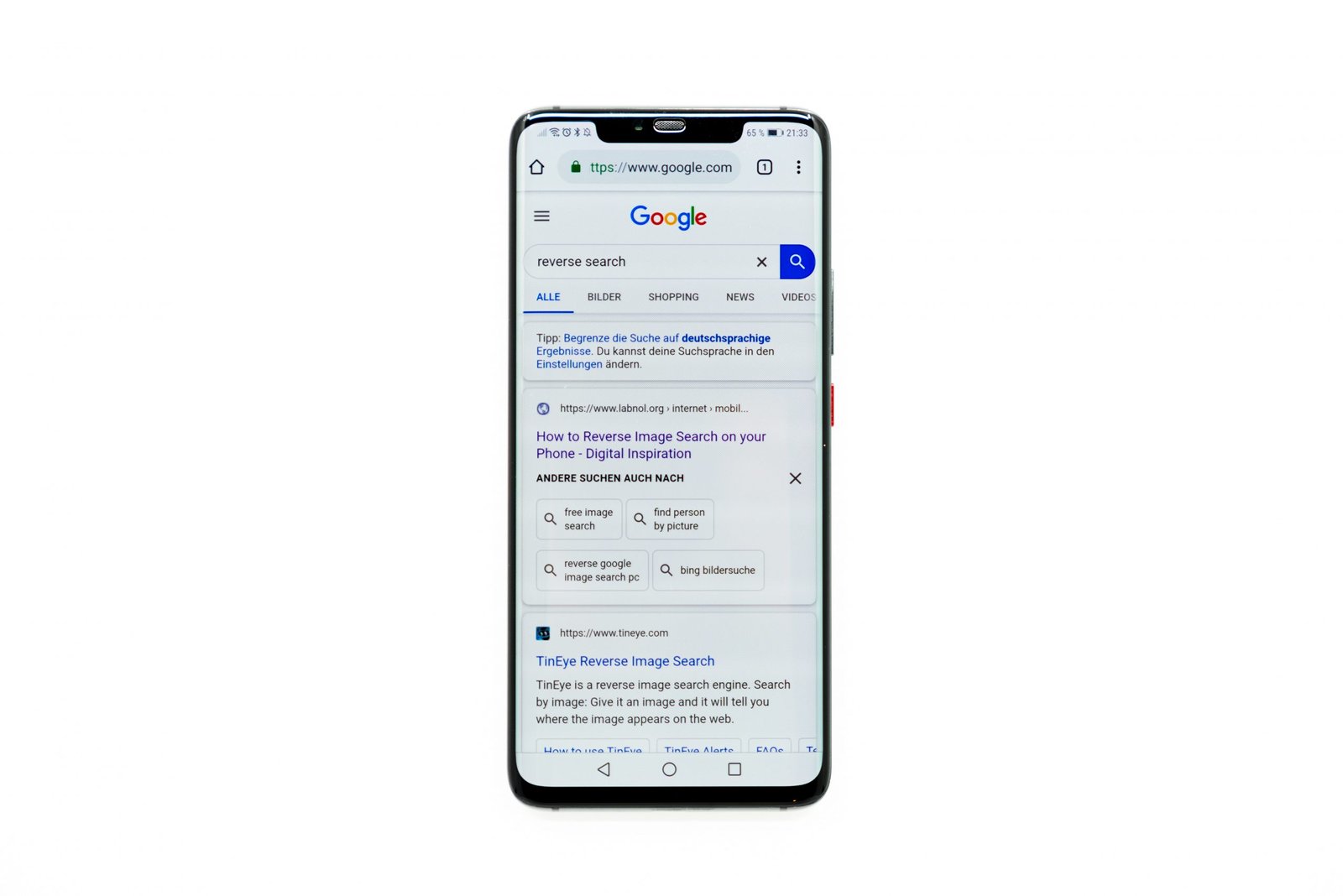Small businesses need to boost their local visibility to stay relevant in their market. Local companies who have just started will have a tough time finding their first customers, especially if they are low on their marketing budget.
We highly recommend them to rely on Local Search Engine Optimisation, which is a simple yet effective online marketing technique to drive customers from search engines to your local physical store.
In this post, we are going to discuss Local SEO business and make our best effort to cover everything that there is to know about this superb marketing technique. So, stay with us till the very end as we have so much to share with you.
What is Local SEO Business?
If you have a local business, especially a brick-and-mortar store and you are looking for a consistent footfall, you have got to do more than just optimising your website. You have to make sure your local audience can find you on the Internet and make their way to your store.
Optimising your online presence in a way that allows you to target people in the same geographical area as you are is what we call Local Search Engine Optimisation or Local SEO. It is the online marketing strategy that will bring you more leads and brand awareness through local search.
While there are so many things you can do to optimise your business website for your local audience, you must give extra attention to word-of-mouth marketing – a significant by-product of Local SEO. It is the tool you should use to address your local audience by helping your website rank higher on search engines.

We will be discussing the most important tasks you need to complete to optimise your site for Local SEO in the section where we will help you implement the strategy for your small business.
But before we jump onto that, let’s figure out why precisely Local SEO is vital to your business success.
Why Should You Care About Local SEO Business?
When it comes to digital marketing, it is relatively easy to get overwhelmed by the sheer amount of information available on the Internet.
For a small business owner that is keen to limit your marketing expenses, it is crucial to know the “WHY” behind marketing a strategy like Local SEO.
The following are some of the apparent reasons why you should be investing in Local SEO for your small business.
1. More Visibility, Better Local Rankings, More Traffic
Local SEO campaigns allow you to maintain your online business citations. It ensures that the content and information you are putting online is up-to-date and accurate.
What we mean by that is the company’s name, business hours, physical address, the phone number is exact and consistent. In Local SEO terms, you call it the NAP (Name, Address, Phone number).
The more you keep your business listings active, the more are the chances your local business will get better visibility and traffic.
2. Get Traffic For Relevant Searches
Local SEO will keep reaping great results for your business. Unlike other one-time marketing investments, Local SEO is a long-term commitment that involves a constant push towards better optimisation of your online presence.
You are not only optimising your website, but you are also improving the user experience a prospect will have with your business. Local SEO works well for a highly-targeted audience using relevant keywords and parameters.
The outcome mostly results in an appropriate traffic generation for your small business.
3. Free Leads Through Google My Business
Google is your best friend as it can generate traffic for your business at virtually zero costs. In return, all that Google wants from you is accurate and updated information.
Google My Business is one of the easiest ways to provide Google information about your business. You can find more information about creating a Google My Business listing for your business.
Search Engines such as Google use this to pull the information your local audience is after. Therefore, this makes it essential to maintain the NAP on your business listings.
We all know by now that Google has built up as a trustable source of data on the Internet. If it pulls information from your GMB listing and shows your business’s contact details to your local audience, chances are people will start trusting your business as well.
4. Content Marketing and Link Building
A huge part of Local SEO business is the creation of locally-focused evergreen content. Thereby, you get backlinks to your business website and over a long period, helps you boost your online authority.
Content marketing and link building strategies can be optimised for the local audience as well. Stick around as we’ll show you how.
Important Local SEO Statistics You Should Know in 2020
- GoGulf claims that almost 46% use Google searches for local information.
- HubSpot Marketing Statistics recommend Local SEO as 72% of the users performing local search end up visiting a local store.
- Nectafy reports that 88% of the Google searches for local businesses done from mobile devices result in a call or a visit to a local store within 24 hours.
- HubSpot Marketing Statistics also claim that 61% of the consumers looking for local businesses online connect with the business if they have a mobile-friendly website.
- Forrester expects mobile-optimisation is going to bring in more than $1.4 trillion in local sales by the year 2021.
- SEO Tribunal shares that 78% of the location-based mobile searches eventually lead to an offline purchase.
- Chat Meter reports that frequency of searches including phrases like ‘near me’ or ‘close by’ have grown by a staggering 900%
Now that you know how vital Local SEO is going to be for the success of your local business, it’s time you learn how to execute a Local SEO strategy as well.
How to Implement Local SEO for Your Business?
By now, you must have understood the importance of Local SEO for your small business. Let’s get deeper into the content and figure out how exactly we can develop and implement a Local SEO strategy for your business.
1. Create Google My Business Listing
Always begin with a Google My Business listing. Claiming your GMB listing and optimising it with the most accurate information is an excellent start to your Local SEO business strategy.
GMB is Google’s online review platform from where Google pulls information to display on its search engine. It allows businesses to get ranked in the local search listing on Google. Remember NAP that we discussed earlier?

Google uses consistent NAP to validate your business information. Hence you must put consistent NAP information into GMB and wait for Google to verify your listing.
Once you have a credible listing, customers will not only be able to fetch information about your business but also review your products and services online. Take these steps and start building your brand presence online.
2. Establish Internal Linking Structure
If you have a business website, make sure it is internally linked. Through internal linking, you will ensure that the visitors on your site never hit a dead end. There are two main reasons why internal linking is crucial to your website’s performance –
● Internal linking supports the navigation on your site. It will never make your visitors hit a brick wall and leave the site. In other words, you will achieve better retention rates for your site.
● Internal linking maintains the right website hierarchy. It is crucial because it helps Google bots index your site to perfection. A proper internal linking structure will improve your chances of getting ranked on Google and boost page authority.
3. Optimise Meta Tags, Descriptions, Header, Title, URL, Content Structure
The fundamentals of your website should be laid just right to make sure Local SEO works the way we know. By fundamentals, we mean elements like Meta Tags, Descriptions, Header, Title, URL, Content Structure and others optimised to perfection.
These unique elements can be found and optimised on your website’s HTML code. Optimising them is essential given the fact that crawlers use this information to index and rank your site.
Most importantly, you must optimise the elements using your primary target keyword. Establish a strong content structure using the header and title tags.
4. Design Location-based Pages
Most local businesses scale their enterprise by opening stores at different locations. Therefore, it doesn’t make sense to have separate online websites for each store you open. It will require more resources and can even harm your brand image.
Instead, create different pages for each store location on your existing website. Creating separate pages for each store will give you ample opportunity to optimise it with the store’s name, address, phone number, business hours, promotions, and even testimonials.
You can even use location-based keywords on the page and install the Google Map functionality to show the location of the respective stores.
5. Publish More Localised Content
Google recommends creating content for the users and not for the search engines. It keeps coming up with smarter algorithms to ensure its users get the best information.
To use the algorithms to your advantage, you will need to create great content as a part of your Local SEO business strategy. And by great content, we mean content that is on purpose optimised for a specific location.
Writing about local news and updates and focusing on your local audience will ensure your local visibility. It will boost your local authority as well. Apart from that, make sure the content is updated regularly.
This fact is crucial since things in today’s world change fast, and the content thereby needs to be still relevant.
6. Focus on Mobile Optimisation
The constant penetration of Internet and mobile technologies has made it easier for users to access information. Given the fact that Google is pushing hard towards a mobile-first ecosystem, it only makes sense to optimise your online presence for mobile devices.
Most local audiences will perform a quick Google search to find information about the nearest businesses that can solve their problems. The one-tap feature on Google will make them land on your site.
If your site’s performance doesn’t meet their expectations, you will begin losing potential customers. Therefore, optimise your site for your local mobile users.

7. Consistent NAP across all channels
The consistency of information you put out on the online channels will matter the most if you are looking to rank on Google. While your intention of using Local SEO strategies might be to improve local visibility, it won’t do any good if you are not consistent with your products, customer experience, and information across all online platforms.
The best way to do that is by ensuring consistent NAP on all channels. We have found many business owners put the NAP over an image. It would be best if you did not do that since images are not crawlable. Instead, it would be best if you placed the NAP in the header or footer of your respective store page.
8. Optimise all online directories and citations
The reason why we have been pushing you to maintain a Google My Business listing is that Google is the most trusted site on the Internet. Getting your business website ranked on the search engine is a considerable feat in itself.
However, it would help if you think beyond Google and also focus on other data aggregators on the Internet. We are talking about business listing sites like Yelp, Trip Advisor, Bing, Apple, and more. Create your account on these sites and claim your listings. Optimise with consistency and avoid discrepancies of all sorts.
9. Link Building
Link building is the practice of gaining more and more inbound links for your site to improve its domain authority. Google is always in search of high-quality content, and while doing that, it factors in the inbound links a site has earned.
Google believes that the more inbound links a site has, the more trustable is the information it shares. Inbound link building is a huge part of Local SEO business and can significantly improve your search rankings. Inbound links can be earned through guest blogging and by publishing high-quality and in-depth content on your site.
However, you must not purchase backlinks as Google’s smart algorithms can detect irregular behaviour of your site. Such an action can seriously impact your website, and Google can also penalise your website rankings.
10. Improve your social media presence
Google also factors in your social media presence while ranking your site on its search engine. Social media signals like engagement and reviews are essential to your site’s search rankings.
Make sure your social media pages are up-to-date and also engage with your customers frequently. Since all social media websites are high domain sites, you must not think twice before sharing your Google My Business page on your social media pages.
Such actions will improve your ability to drive traffic from social media sites to your business website. It is probably the best way to align social and search.
Wrapping Up
There you have it. We have shared everything you need to know to get started with Local SEO. However, we highly recommend you hire a Search Engine Optimisation expert to help you build a robust SEO foundation for your site.
Are you still Looking for more information regarding Local SEO or online marketing in general? To stay on top of the latest news and updates from the digital marketing world, subscribe to our weekly newsletter!




